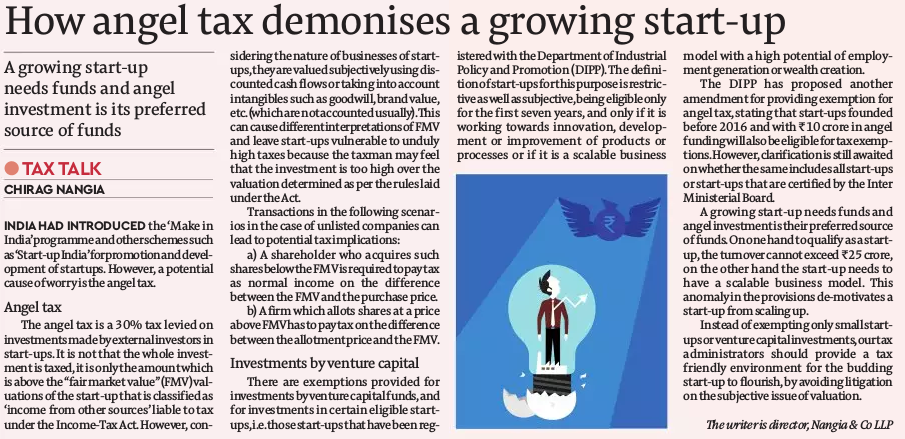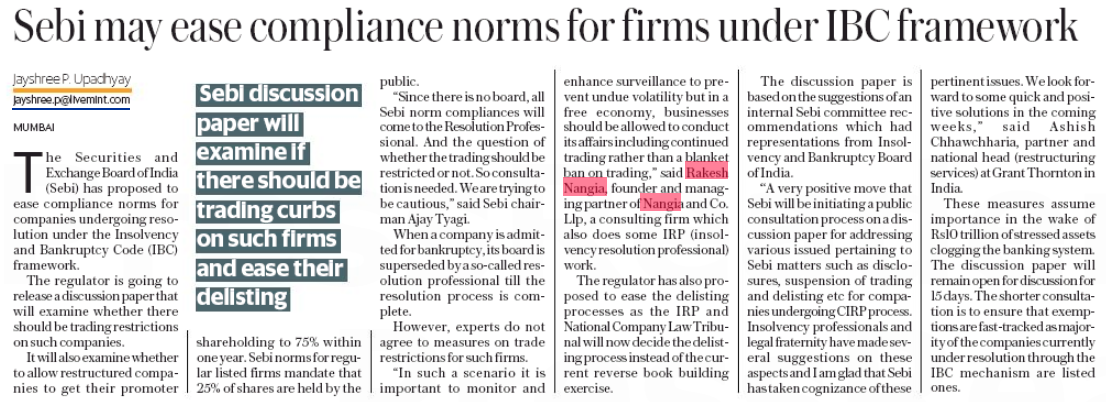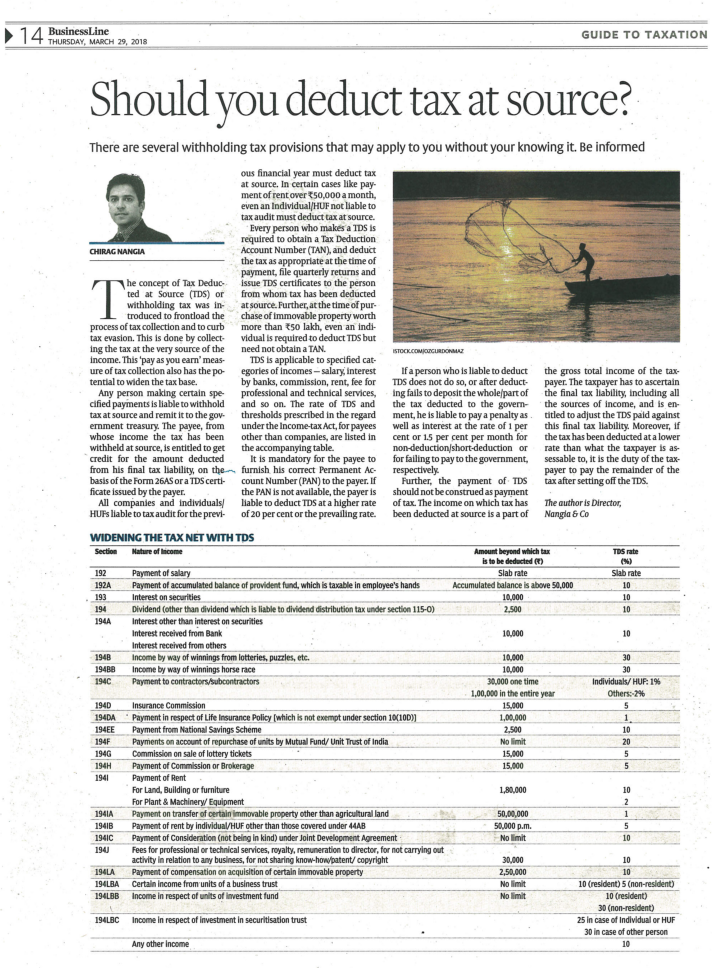
How angel tax demonises a growing start-up- Chirag Nangia
The angel tax is a 30% tax levied on investments made by external investors in start-ups. It is not that the whole investment is taxed, it is only the amount which is above the “fair market value” (FMV) valuations of the start-up that is classified as ‘income from other sources’ liable to tax under the Income-Tax Act. However, considering the nature of businesses of start-ups, they are valued subjectively using discounted cash flows or taking into account intangibles such as goodwill, brand value, etc. (which are not accounted usually).
Chirag Nangia, Nangia & Co LLP contributed an article on How angel tax demonises a growing start-up for Financial Express.









